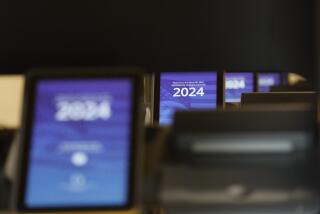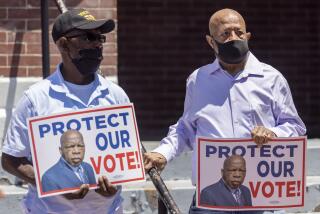Voting fraud frenzy threatens a core American liberty
Voting fraud is an issue that has generated a great deal of heat and very little light on the right. Fox News host Megyn Kelly recently had to backtrack from her report that voters in Colorado were being allowed to print out ballots at home and admit that was simply not true. But that did not stop her, or her compatriots in the conservative media, from continuing to whip up fear about elections being stolen by hordes of fake voters.
Does fraudulent voting occur? Of course it does. Mostly, though, it happens in local elections where some crooked official stuffs ballot boxes with bogus ballots. These days, this is very rare. Even more rare is some individual showing up to vote who is not eligible to exercise that right. Under President George W. Bush, the Justice Department conducted a five-year study of voter fraud. In the end, the study found just 38 violations that could be taken to court. Only one of those cases involved someone impersonating a real voter.
There are already plenty of laws against all kinds of voter fraud. But Republican legislatures and governors in several states have been on a crusade to weed out illegal voting by passing a range of restrictions justified primarily by “impersonation fraud” – the kind of fraud that is so rare that examples are extremely hard to find. A mere 10 cases of voting fraud have been reported over the last five years in each of the states of Texas, South Carolina, Kansas and Tennessee, yet those states have toughened up voter identification rules.
When states dig a little deeper into charges of individuals voting when they shouldn’t, they usually find there has been a clerical error or a problem with public records (as South Carolina discovered when investigating an erroneous claim that 900 dead people had voted in recent elections).
Do the laws being pushed to remedy voting problems do anything to clean up bad record keeping? Nope. Instead, the new laws simply make it harder to vote. They curtail voter registration campaigns and early voting. Those are steps that do very little about fraud, but do discourage working people, minorities and young people from voting.
Democrats make the argument that all the noise about voting fraud is simply a distraction to hide what Republicans are really doing: voter suppression. The biggest point of contention is the GOP’s push for all voters to have valid IDs when they show up at the polls. Although most of us have a driver’s license or some other form of government-issued ID, not everyone does, and a big proportion of those folks without official IDs are poor and nonwhites – not exactly the Republican base.
The central principle that gets obscured in this debate and that should be of key concern to libertarians on both the left and right is that voting is the core liberty guaranteed to every American by the Constitution. Any restrictions on voting should be scrutinized with at least as much skepticism as the NRA brings to even the slightest curtailment of the right to keep and bear arms.
There should be more opportunities to vote, not fewer. There should be more people voting, not fewer. And, because this is a sacred right, we should make sure that only people who are eligible get to vote. But, in too many states, the voting restrictions being imposed are not actually protecting the right to vote, they are trying to ensure that only the right kind of people vote.
More to Read
A cure for the common opinion
Get thought-provoking perspectives with our weekly newsletter.
You may occasionally receive promotional content from the Los Angeles Times.







